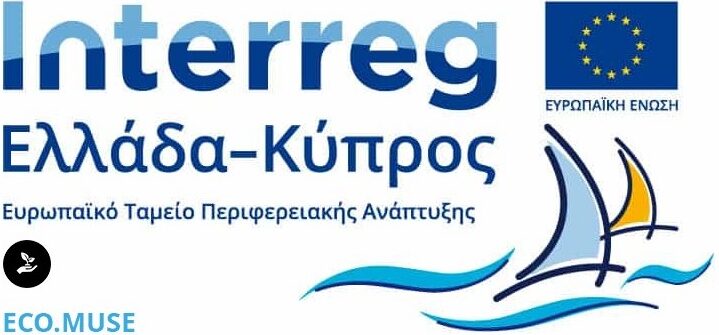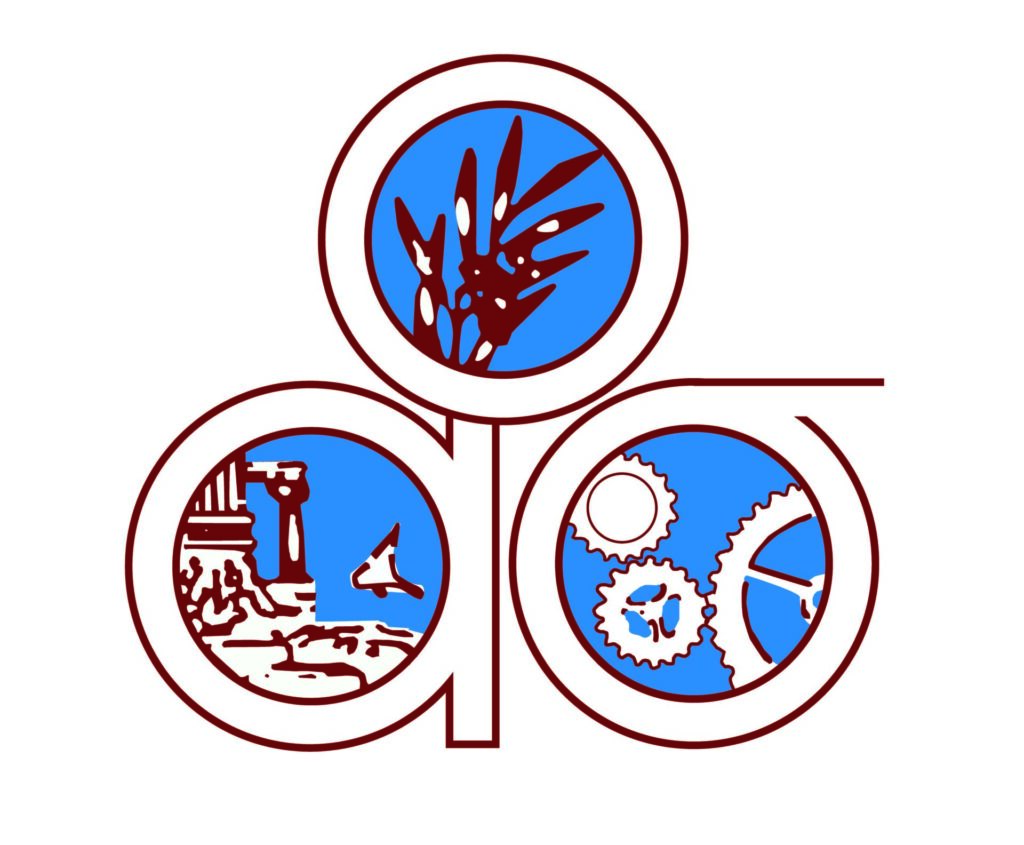
Sitia Development Organization S.A.
The Sitia Development Organization (O.A.S. S.A.) is a development joint-stock company of the Municipalities of Sitia and Ierapetra and other bodies of the Local Government, of the productive classes and Cooperatives of the prefecture of Lassithi and Crete.
Apart from the Municipalities of Sitia and Ierapetra, the large productive classes of the region, ie the farmers, the craftsmen and the professionals of the tourist area, are represented in the Board of Directors of OAS through their organizations.
Its purpose is to provide support for the Local Regional Government and other responsible authorities and also for the private sector in the undertaking and realisation of development projects and initiatives and in general to assist local development.
The S.D.O. accomplishes this by means of projects, surveys, services and initiatives mainly of a rather specialised nature, such as:
Technical and financial feasibility studies and research, the providing of up to date information and advice, technical and organisational support, establishing businesses, the exchange of experience, the transference and spreading of technical expertise, demonstration and pilot schemes and activities, the creation of networks of co-operation, the administration and application of schemes already integrated (as e.g. the LEADER PROGRAMME), taking part in the activities of special authorities, acting in a supporting role in matters of international relationships for the Regional Government and other responsible bodies.
The above have been brought about by making good use of the different opportunities and schemes organised through Regional, National and above all European programmes some of which are competitive.
The S.D.O. operates in ways based on the principles of administrative autonomy, executive efficiency, integrity and meritocracy and of negotiated agreement and communal discussion. The S.D.O. acts as both a technical consultant and a catalyst for Local Development.
Contact info:
SITIA DEVELOPMENT ORGANIZATION S.A.
8 E. Zacharia & I. Kapodistria st.
72300 Sitia, Crete, Greece
Tel. +30 2843023590, +30 2843025887
E-mail: info@oas.gr
Web: www.oas.gr

Municipality of Sitia
The area of Sitia has always been an economic and administrative center in eastern Crete. The city has a key geographical position, as it is located at the eastern end of the northern axis of Crete’s development. On this axis are the big urban centers of the island, the core of tourist development and the entrance-exit gates of the island. Sitia Port and Airport have been designated as interregional. The area of Atherinolakkos is characterized as an “Energy Node.
The geophysical terrain of the soils presents intense diversity. The presence of rich natural formations (mainly gorges, caves) in combination with the steep slopes of the ground, form a very diverse, impressive and attractive landscape; Sitia is also home to the uniquely natural palm forest of Vai. Almost the entire area is the Sitia Geopark which is part of the UNESCO World Geoparks Network and the European Geoparks Network (EGN).
The productive base of the region is mainly oriented to the tertiary sector, with emphasis on trade and tourism, which absorbs about 65% of the employed and secondarily to the primary, ie to agriculture and mainly the production of olive oil and wine and to a lesser extent the livestock, fisheries and beekeeping. The primary sector, despite its small share in employment, plays an important role in the region’s economy, as Sitia produces unique, high quality agricultural and livestock products, some of which have received significant distinctions / awards such as olive oil, wine and tsikoudia. Also, thyme honey is of high quality, while aromatic plants are a dynamic cultivation with auspicious prospects. In general, Sitia shows significant potential in the so-called “agri-food” sector, which is an important vehicle for economic development and boosting exports, while it can also contribute to the interconnection of the primary sector with the tertiary (tourism). An important role in this direction is played by the Department of Nutrition Science of the Mediterranean University of Crete, based in Sitia.
The comparative advantages of the area include the unique cultural reserve formed by important archeological sites, museums, monasteries, traditional settlements, numerous rural monuments, which constitute a pole of attraction for visitors, but also the particular elements of the intangible cultural heritage that include nutrition and local cuisine, arts and letters.
In general, the development profile of Sitia has important characteristics that are part of the triptych “countryside – local products – tourism (mild)”.
The Sitia eco-museum can be directly connected with the local communities, strengthening their cultural identity and creating for them models of sustainable development. The eco-museum of Sitia can tell the story of an area that is inextricably linked to the cultivation of the olive tree.
Work team:
Contact with beneficiary:
Website:

Special Account for Research Funds of University of Crete (SARF UoC) Natural History Museum of Crete
UoC has 17 Departments in 5 Schools including the Natural History Museum which will implement the project.
Natural History Museum of Crete (NHMC) was established as a department of the Faculty of Science of the University of Crete since 1980, being a pioneer institute at national and European level in several aspects of biological and geological diversity. The first aspect regards research on the environment of the Eastern Mediterranean at all levels, i.e. from basic to applied research, from the cellular to the level of the ecosystems, and from state of the art applications and techniques to management of protected areas and continuous interventions on environmental issues of local and national interest.
The NHMC focuses in studying aspects of the Eastern Mediterranean diversity in the fields of Geology, Palaeontology, Ecology, Evolution, Biogeography, Phylogeography, Phylogenetics, Systematics and Taxonomy. At present, seven departments are fully operational:
- Botany department
- Department of Arthropods
- Department of Vertebrates
- Invertebrate department
- Geology department
- Molecular Systematics Lab
- Ecology & Environmental Management Laboratory
It is the only Natural History Museum in Greece, dealing with all aspects of natural environment and occupies a significant number of specialists in biological and geological diversity.
In NHMC permanent Exhibition Halls, of 3500 m2, in the city of Heraklion, Crete, the natural environment of the eastern Mediterranean area with special emphasis on Greece and Crete, is displayed. Additionally, having participated and participating in several national, European and international conservation and management projects concerning protected areas and priority species, NHMC has a vast in the field of conservation and management in Crete, with great results.
In 2012, NHMC was awarded by the Emmanuel Benakis prize of the Academy of Sciences in Athens for its complex educational, research, writing and publishing deed, its exemplary organization and structure that designate it as one of the most significant, for its specialty, museum globally, in which scientific research is being advanced and make it equivalent to similar foreign institutions and education sites.
Also, NHMC is awarded the Certificate of Excellence since 2013 by Trip Advisor (voted by the visitors as one of the excellent tourist destinations worldwide).
Contact info: Natural History Museum of Crete University of Crete
Knossos Avenue, Heraklion 71409, Crete, Greece
Tel: +30 2810393276
Email: sec@nhmc.uoc.gr
Website: www.nhmc.uoc.gr
Contact Person: Michalis Probonas, +30 2810393265, mprobonas@nhmc.uoc.gr
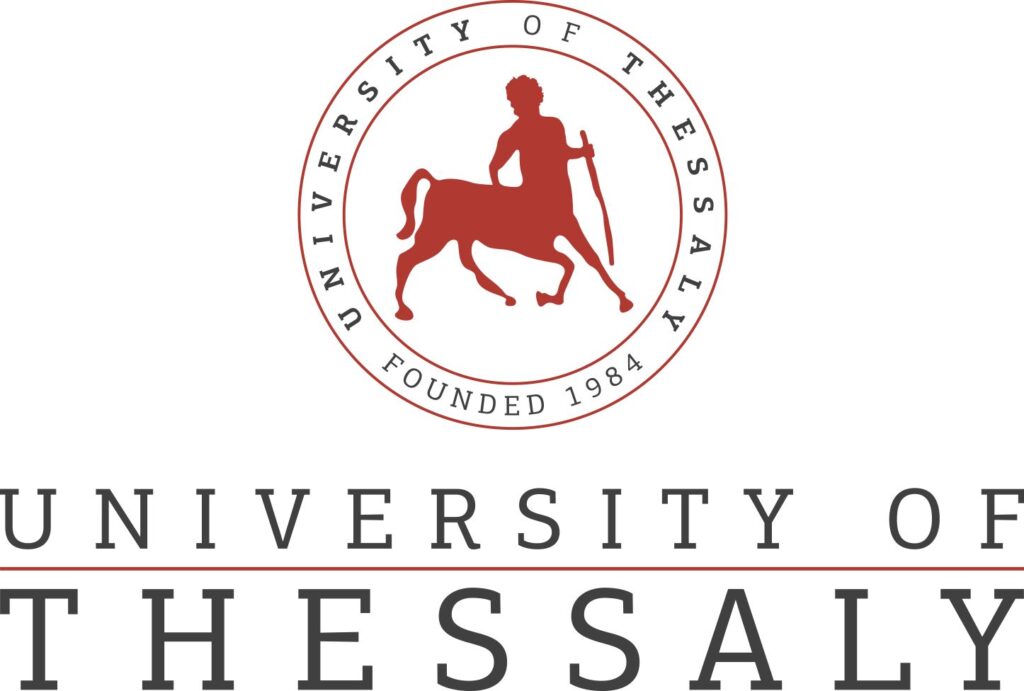
Special Account for Research Funds of University of Thessaly
The Laboratory of Rural Areas was established in 20/7/1998 (Government Gazette 173AD) based on the presidential decree 219/98. The Lab already operated as a research unit in the Department of Planning and Regional Development of the University of Thessaly since 1996. It covers educational and research needs in the fields of rural development and planning, emphasizing:
- the formulation of integrated local development and territorial strategies in rural areas at every scale (community, municipality, intermunicipality, etc),
- the evolution of the territorial development model, focusing:
- on the diagnosis of a territorial area with the use of integrated methodology combining social and geospatial methods along with high-tech tools,
- on the methods of identification, emergence and enhancement of local territorial resources through adapted action plans of integrated nature which incorporate the local social capital and/or the diaspora,
- on the improvement of the role of local actors in the participatory process of designing a development plan, from diagnosis to the formulation of actions and their application plan (operational planning),
- on the organisation of territorial governance and the active participation in planning and application of territorial public action (bottom-up planning of multi-sectoral and multi-funded programs)
- on the development of small towns in rural areas (rural centers) and their role in local government
- on the evolution of family farming in the context of a wider multifunctionality of the rural space
- on the contribution of new technologies (geo-informatics science) in the creation of spatial analysis tools, territorial diagnosis and the construction of specific territorial resources
Through its participation in national or European programs, the Laboratory of Rural Areas/ DPRD-UTH and its researchers have contributed through publications in international books, scientific journals and announcements, in the organization and coordination of workshops, conferences and focused scientific meetings.
Contact with beneficiary: Gousios Dimitris, Professor, Scientific Responsible
Tel.: +30 2421074463
E-mail: rurlab@uth.gr
Address: University of Thessaly, Department of Planning and Regional Development, Pedion Areos, 38334 Volos
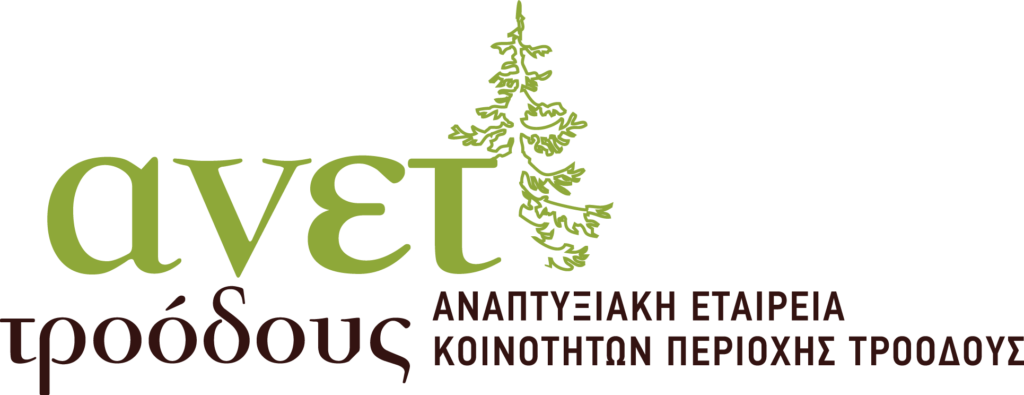
Troodos Development Company LTD
Troodos Development Company LTD is non-profit company without share capital. It is an approved Local Action Group, implementing the Local Development Strategy of the Local Leader Agriculture Program for the Troodos region, for the programming periods
2007-2013 and 2014-2020. During the previous programming periods, since 2009, the Company implements programs from the European Regional Development Fund (Interreg Greece-Cyprus, Interreg Mediterranean etc.) and from the European Agricultural Fund for Rural Development (LEADER Agriculture). At the same time, since 2015, by decision of the Council of Ministers, it has been designated as the Managing Authority of the Troodos UNESCO Global Geopark and the Visitor Center housed in the old Asbestos mine in Pano Amiantos.
In addition, with continuous education and training of its staff (Accountant, Economist, Civil Engineer, Geologist, Agronomist, Rural Development Consultant), and with a network of experienced external partners (Universities, consulting companies, etc.), it provides consulting services to Individuals and Local Governmen. Specifically, the Company undertakes: Consulting services on public procurement (preparation of documents for the Contracting Authority, receipt of offers, unsealing of offers and evaluation, preparation of evaluation report, preparation of letters of rejection and award of tenders, preparation of Contracts between them), feasibility studies, technical studies, preparation of applications for projects co-financed by the European Structural and Investment Funds (ESIF) and the European fund for rural development (EAFRD), consulting and agricultural services and any other services regarding tourism, agriculture, marketing and distribution of agricultural products, etc.
The geographical area of intervention brings together the sub-regions of Marathasa, Solea, Koumandarochoria, Limassol Mountain Resorts, South and North Pitsilia and finally Krasochoria-Ampelochoria. In total, our company has 84 registered members (63 Community councils and 21 private entities).
In recent years, the Company has been active in the field of Education and Training Programs and in 2018 was approved by ANAD, as a Vocational Training Center, and has two (2) approved rooms as Vocational Training Structures.
ANET’s main concern is the establishment of the Troodos area as a single administrative area with financial independence and the provision of quality services for the implementation of projects to Individuals and Local Authorities.
Contact info: Troodos Development Company LTD
Tel.: +357-22952043
Fax: +357-22952045
E-mail: info@anetroodos.com
Website: http://www.anetroodos.org
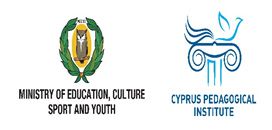
Cyprus Pedagogical Institute
The Pedagogical Institute was founded in 1972 by a decision of the Council of Ministers and started operating in 1973 aiming at becoming “…a centre where the profession itself undertakes a critique of its activities, and where cooperative work is done by educators at all levels of seniority in the system, whether they are engaged in class teaching, in teacher training, in supervisory roles or in educational administration.” (Weddell, UNESCO report 1971, p. 14, §3.9)
The mission of the Cyprus Pedagogical Institute (C.P.I.) is to cater for the continuous training of teachers at all levels so as to assist them in their efforts for professional and personal development. As of June 2002, the Curriculum Development Unit (CDU) has been incorporated into the C.P.I. Within the framework of the Educational reform, as of 2008, following a decision made by the Council of Ministers, the Centre of Educational Research and Evaluation was founded while, parallel to that, the Scientific Council for the Centre of Educational Research and Evaluation was established. The mission of the Centre of Educational Research and Evaluation is to advise the Ministry of Education and Culture on matters related to the continuous professional development of teachers and to conduct research on issues that are within the responsibilities of the two Directorates.
The work of the Cyprus Pedagogical Institute is, principally, developmental in character, addressing all levels of education. The mission of the C.P.I. is the continuing professional development of all teachers, in the context of the stated educational policy, and its work covers all levels of education operating towards various directions:
- It offers in-service training to teachers of all levels through several compulsory programmes and optional seminars;
- It plans and executes education research and evaluation studies;
- It follows and adapts current trends in pedagogy;
- It promotes the use of new technologies in education;
- It undertakes the writing and publication of teaching books, the designing of the curriculum and the production of teaching materials.
The CPI runs a number of professional development programs every year, including large scale centralized trainings and school-based programs (www.pi.ac.cy). It has developed structures and processes that allow the effective implementation of its programs in collaboration with the departments of the Ministry of Education and Culture, the teacher unions and other stakeholders. At the same time, the CPI develops online environments, digital tools and content in order to support the teachers and their professional development. Some examples are the following: www.pi-eggrafes.pi.ac.cy: an online environment for programs administration available to all teachers as well, www.e-epimorfosi.ac.cy: portal with open educational resources and teacher communities, www.elearn.pi.ac.cy: online learning environment for online and blended courses for teachers.
The CPI contributes in policy recommendations for the Ministry. Through research and field work as well as representation in working and expert groups in the European Commission, the CPI keeps informed on the current trends in education. In the field of ICT the CPI is represented in the ET2020 Working Group on Digital and Online Learning and the Media Literacy Expert Group. At the same time the CPI has close collaboration with the public and private universities in Cyprus as well as universities and other professional bodies abroad.
Contact info: Cyprus Pedagogical Institute
40 Macedonia Av., 2238 Latsia. P.O.Box 12720, 2252 Nicosia.
Tel.: +357-22402300
Fax: +357-22480505
E-mail: info@cyearn.pi.ac.cy
Website: https://www.pi.ac.cy/pi/
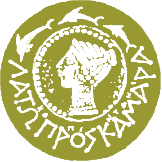
Municipality of Agios Nikolaos
Municipality of Agios Nikolaos, the capital city of Lasithi, geographically located at the north-east part of the island of Crete, is the local administrative and financial center, that supports local development and especially the development of tourism, by receiving vast numbers of visitors annually.
Its natural landscape is dominated by the beautiful city lake that attracts visitors. Numerous locations at the coastal zone, such as Elounda, Plaka and Milatos, along with picturesque villages of the inner land such as Kritsa contribute to the greatness of the natural beauty and promote local culture and traditions.
The Municipality of Agios Nikolaos invests in promoting local diet and gastronomy as a value, a valuable lesson-learnt and legacy to future generations. A great variety of local products compose the simple but worldwide famous Cretan diet: The internationally awarded extra virgin olive oil from Kritsa, local wine, wheat or barley rusk and dairy products.
The Open Ecomuseum is aligned with the local character of the area and intends to preserve the cultural identity within a sustainable development framework.
Contact with beneficiary:
Roussou Kapetanaki, 72100, Agios Nikolaos
Tel: +30 2841340100
E-Mail: info@agiosnikolaos.gr
Website: https://www.agiosnikolaos.gr/
Contact Person: Pratsinaki Maria, +30 2841340120, pratsinakim@yahoo.gr
